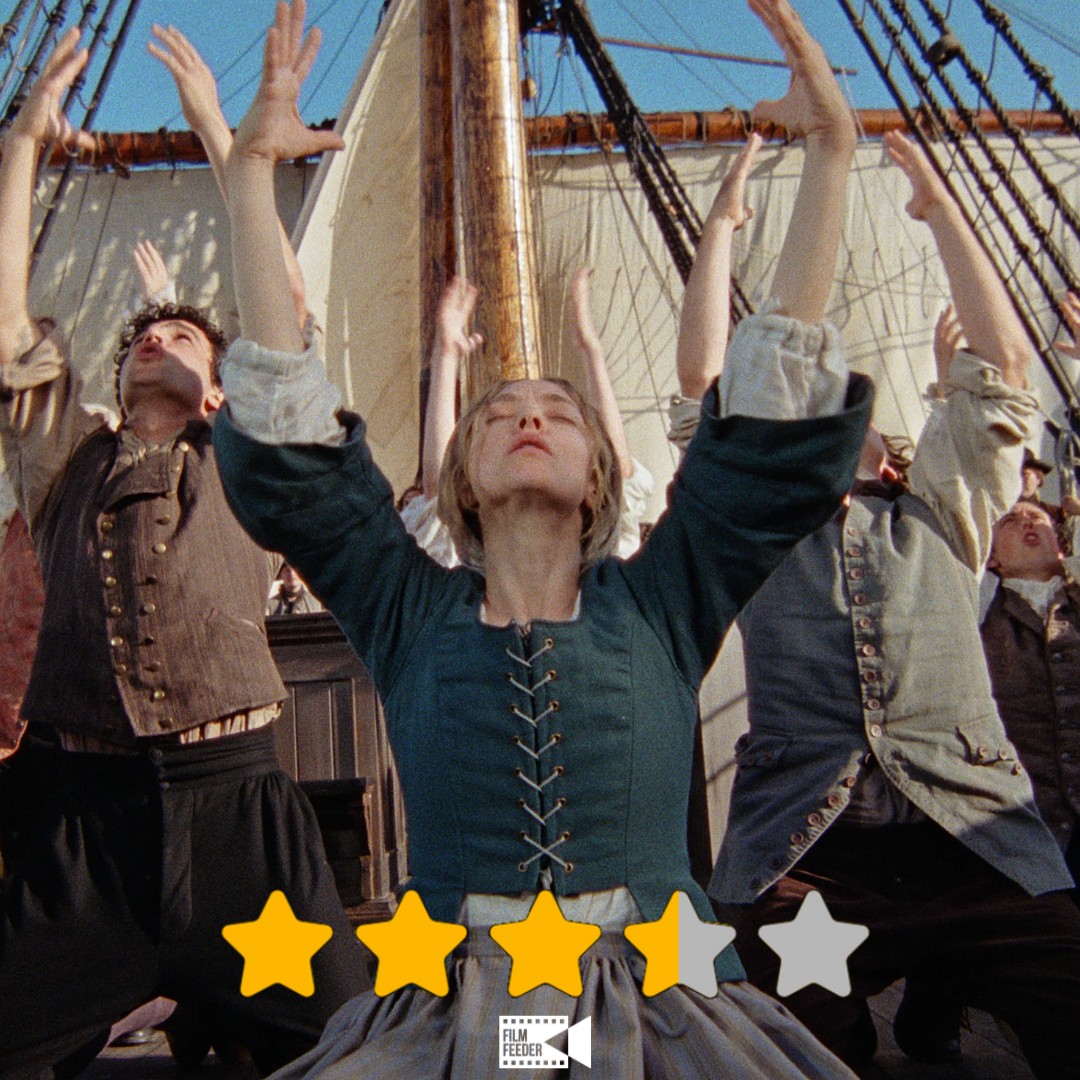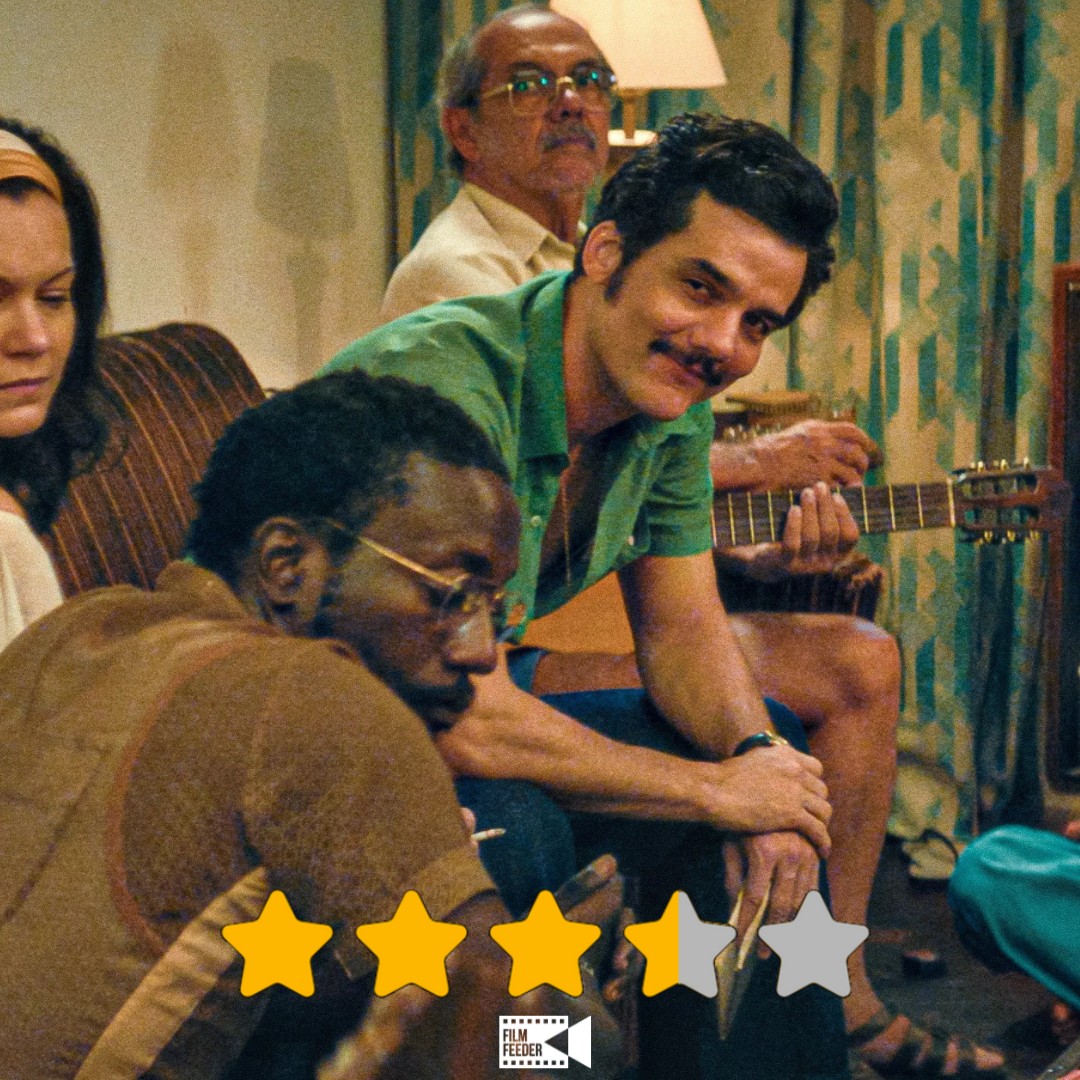
His Three Daughters (2024, dir. Azazel Jacobs)
Certificate: 15
Running Time: 105 mins
UK Distributor: Netflix
UK Release Date: 20 September 2024
WHO’S IN HIS THREE DAUGHTERS?
Carrie Coon, Natasha Lyonne, Elizabeth Olsen, Jay O. Sanders, Jovan Adepo, Rudy Galvan, Jose Febus, Jasmine Bracey
WHO’S BEHIND THE CAMERA?
Azazel Jacobs (director, writer, producer, editor), Matt Aselton, Lia Buman, Tim Headington, Diaz Jacobs, Marc Marrie, Duncan Montgomery, Alex Orlovsky, Jack Selby and Mal Ward (producers), Rodrigo Amarante (composer), Sam Levy (cinematographer)
WHAT’S IT ABOUT?
Three estranged sisters (Coon, Lyonne and Olsen) reunite to care for their dying father…
WHAT ARE MY THOUGHTS ON HIS THREE DAUGHTERS?
I may have missed Rebel Ridge (though in my defence, I was abroad in Toronto, where I scarcely had the time to even write the reviews for the films I saw there), but at least I managed to catch another one of Netflix’s September highlights, Azazel Jacob’s His Three Daughters – a film that, funnily enough, debuted at the Toronto International Film Festival one year prior.
In a lot of senses, His Three Daughters definitely feels like something that would have had its world premiere at TIFF. It’s a quiet, intimate, character-centric and performance-heavy film that feels designed to impress critics but leave general audiences wanting a little bit more, but what it ends up offering is a slice-of-end-of-life family drama that offers dynamics and scenarios that those with close (or even not-so-close) relatives can strongly relate to.
Jacobs’ film focuses on three sisters – Katie (Carrie Coon), Rachel (Natasha Lyonne) and Christina (Elizabeth Olsen) – who have come together to care for their terminally ill father Vincent (Jay O. Sanders), who only has days to live and receives hospice care around the clock. Of the sisters, only Katie and Christina are related fully by blood, while Rachel, who’s been living in Vincent’s New York apartment caring for him up to this point, is their half-sibling, having been birthed from another marriage.
As you may imagine, tensions between the estranged sisters are already high, as the supremely judgemental Katie disapproves of practically every aspect within Rachel’s life, from her habit of smoking weed to obsessively betting on numerous sports matches, while the cooler-headed Christina can’t help but flex her superiority complex with frequent mentions of her seemingly perfect family. Eventually, as they (except for Rachel) take turns going into their father’s room to look after him, they start opening up to each other and recognising their similarities as opposed to only seeing their differences.
Much of the film takes place in and around this apartment, with a few occasional ventures outside to a local park or to a corner store, while at least one of the three main leads is on screen at almost all times, swapping dialogue with each other or with any one of the other characters in the scene. If it sounds like something that would occupy the stage rather than the screen, then that’s exactly the kind of vibe that Jacobs gives off in his writing and direction. While His Three Daughters is not adapted from anything, least of all a play, it’s incredibly easy to see this same script working equally as well if it were an off-Broadway production, as the mere structure alone lends itself a number of theatrical possibilities that not even a film could offer.
As a film, there is enough to take away from it for there to be a formidable viewing experience, even if it’s hard to shake off its unintentionally stagey vibes. It is a movie that is very much anchored by the strength of its three central performances, with Carrie Coon, Natasha Lyonne and Elizabeth Olsen all at the top of their game in a trio of impressive performances as very different but astonishingly relatable characters. Coon’s Katie, for instance, masks her resentment for her father’s initial affair that birthed Lyonne’s Rachel through hurtful criticism of her half-sibling’s lifestyle, to where at one point she even suggests that she’s less of a daughter to him than she or Olsen’s Christina is.
As stinging as that may be in the moment, this is a character that is still humanised by the end, as is Christina whose somewhat self-absorbed lifestyle (she repeatedly mentions out loud how one of her father’s hospice nurses has the same name as her young daughter) similarly cover up her own insecurities surrounding the complications of her own upbringing. Even Rachel, arguably the most put-together of the three sisters, is working up the courage to even venture into the bedroom where her (rarely seen) father is slowly fading away. All three sisters are working through their grief in varying fashion, and the actors do extremely well to convey their shifting emotions in ways that may make you recognise some of these traits in your own siblings or wider family members.
That is ultimately the strength of His Three Daughters, for it has you reminiscing about family in ways that don’t always feel forced or manipulative. Jacobs seems to truly understand that every sibling has as many differences as they do similarities, which is part of what makes us all our own individual people rather than simply being defined by the blood that we share, and he puts that into a scenario that is surely tender for any family that has gone through the prolonged loss of a loved one, in addition to allowing each and every emotion to froth at the surface in healthy and ultimately helpful ways.
Though the film as a whole doesn’t quite leap off the screen, for again it often looks and sounds like it may have been better suited for the stage, it is a quietly powerful study of family that most people can easily connect with. That alone makes it worthy of its TIFF characterisations.
SO, TO SUM UP…
His Three Daughters is a quietly powerful study of family that is anchored by three strong and firmly relatable performances by Carrie Coon, Natasha Lyonne and Elizabeth Olsen, which help the film overcome some of its limited, often stage-like vibes.














0 Comments